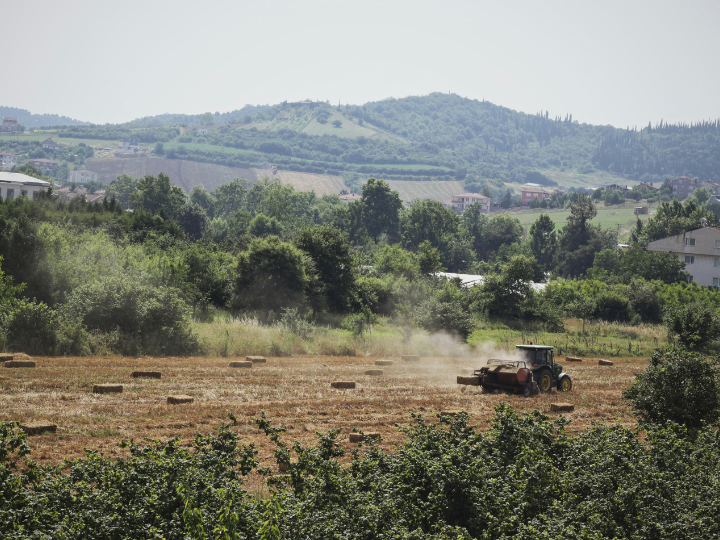by Anne-Sophie Gayet
German, Polish, Romanian, and French farmers were joined in their protests by Belgian farmers on Friday and throughout the weekend, with demands similar to those of their European peers.
Walloon farmers protested this weekend as part of the Trop is te veel (Too much is too much) campaign, led by the Walloon Federation of Agriculture (FWA), to denounce the “suffocating” situation in which they currently find themselves.
The French slogan “On marche sur la tete“ (“We are walking on our heads”) was taken up by the Belgians, who also turned over the signposts of certain towns at the entrances of these.
The protests, which included road blockades, have so far been conducted peacefully.
“People don’t have to pay [for this situation], and our goal is to be constructive to make things change,” said the Walloon Region’s main farmers’ union, adding that the main aim is to make citizens and politicians aware of their situation.
Flemish farmers are expected to join in the coming days, while the Walloons should continue their actions during the week.
Protesters are expected to head for Brussels on Thursday, where an extraordinary summit of the European Council will be held, Europe 1 reported on Sunday.
The anger expressed by Belgian farmers echoes that of farmers in Romania, Poland, Germany, the Netherlands and France ahead of the crucial European elections in June, in which the far right is expected to make gains.
Demands
In Belgium, as elsewhere in Europe, farmers are calling for a decent income as they face rising production costs and falling product prices. This situation is not economically viable and does not encourage young people to enter the profession.
They want legislation that will enable the sector to be “truly sustainable economically, environmentally and socially,” the FWA said in a press release.
Farmers also denounce the administrative burden and complexity of European environmental policies.
The FWA says it is “urgent to achieve real administrative simplification” and calls for an “in-depth” review of the Common Agricultural Policy (CAP), as well as an “economic, environmental and social assessment by the European Commission of the impact of all the legislation and constraints it has imposed on the sector in recent years”. Farmers say the CAP budget should compensate for all the constraints and should be increased and indexed to inflation.
At the same time, farmers are critical of agreements such as the EU-Mercosur deal, condemning that the EU imports products that do not meet the same standards they are required to respect under EU legislation. They call for a ban on such imports as well as for mandatory mirror clauses.
Access to land and the transfer of farms is another key issue raised. In its press release, the FWA stresses “the importance of working on generational renewal in agriculture,” a problem not only in Belgium but also in other member states such as France.
Political response
On Sunday, the FWA welcomed the “first steps forward” following the announcement by Walloon Agriculture Minister Willy Borsus (MR, Renew) that a task force linking Federal, regional and EU levels would be set up to tackle the problem of administrative overload.
Last Friday, the minister said European Commission President Ursula von der Leyen’s strategic dialogue on the future of agriculture, which was launched on 25 January, was an “opportunity” that must be “seized” to address farmers’ concerns.
Farmers also travelled to Brussels, where they met Federal Agriculture Minister David Clarinval (MR). FJA, FWA, where the Flemish Algemeen Boerensyndicaat (ABS) and the United Federation of Breeders’ and Farmers’ Groups (FUGEA) were also present.
For the minister, farmers’ concerns “need to be tackled at regional, Federal and European level,” citing “administrative burdens of the new CAP, a budget that is insufficient to ensure a decent income, excessive environmental constraints under the Green Deal, and the absence of mirror clauses in international free trade agreements”.
He also insisted that agriculture should be seen as “an essential strategic activity, not an adjustment variable for other policies, particularly environmental and budgetary policies”.
*first published in: Euractiv.com




 By: N. Peter Kramer
By: N. Peter Kramer

